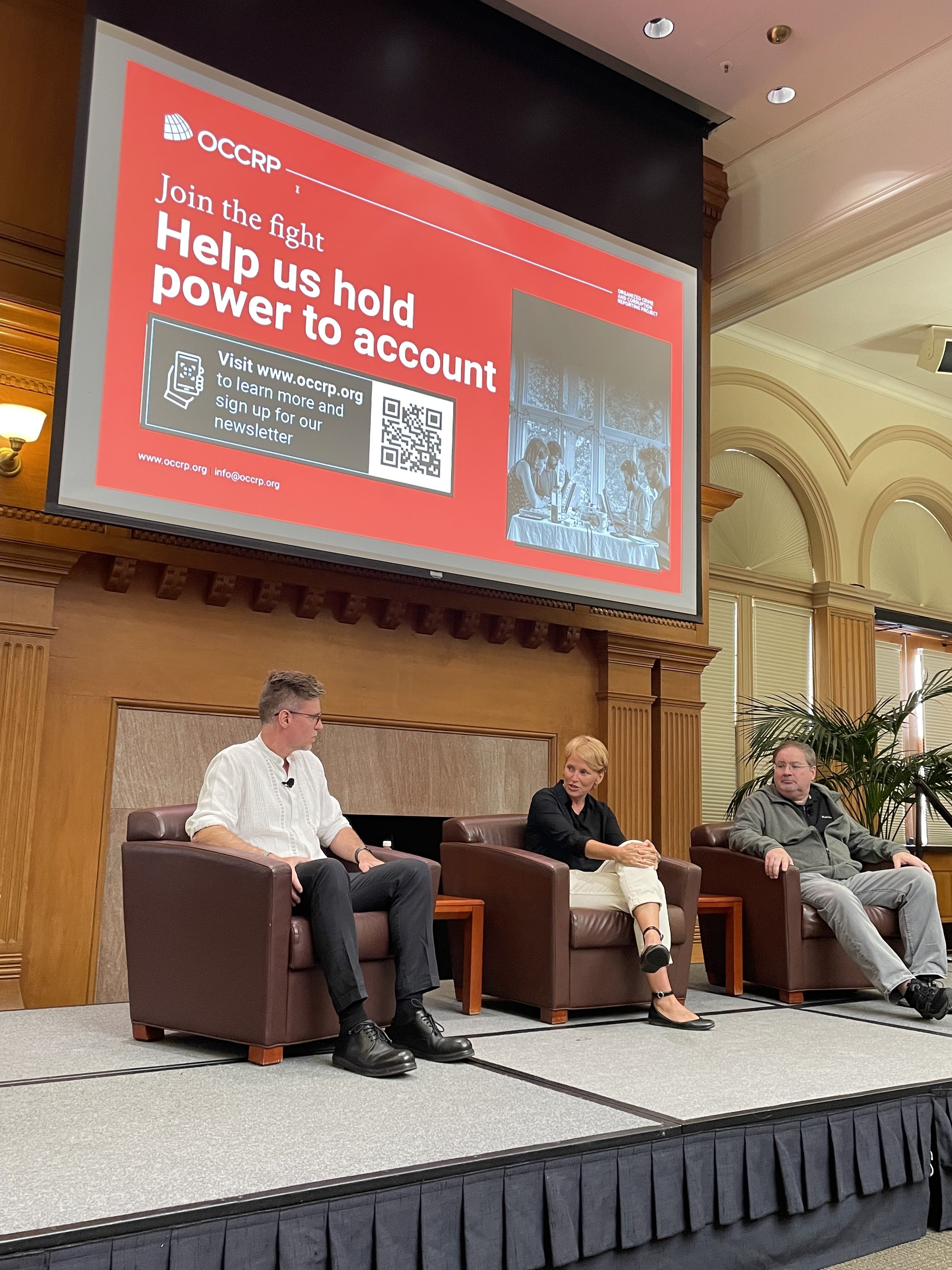“An attack on journalists is an attack on all of us,” read the opening words of the documentary “The Killing of a Journalist,” which was screened at the Freeman Spogli Institute last Thursday.
Directed by the Organized Crime and Corruption Reporting Project (OCCRP) and Final Cut for Real, the 2022 film follows the investigation of the 2018 murders of Slovak investigative journalist Ján Kuciak and his fiancee, Martina Kušnírová. Prior to his death, Kuciak was tracing tax fraud of several businessmen with connections to top-level Slovak politicians.
This was the first time a journalist was murdered in Slovakia since its independence. The killing left an enduring mark on the entire country, sparking widespread demonstrations and a surge of protests demanding justice.
The documentary goes far beyond simply exposing the people responsible for the murders. It recorded an OCCRP-led investigation of the murders, which shed light on deep-rooted corruption at Slovakia’s executive, legislative and judiciary levels, ultimately leading to multiple resignations and a political transition.
Pavla Holcová, member of OCCRP and current John S. Knight Journalism Fellow at Stanford, worked with Kuciak before his death. She took a crucial role in the investigation. As Kuciak’s close collaborator and friend, she and her team were personally motivated to expose corruption in the Slovak government, finishing the stories Kuciak started.
During a Q&A session following the screening, Holcová said that the investigation was able to make a positive difference because the “media put aside the competition mentality and got together to investigate.”
The investigation saw a breakthrough after an anonymous source delivered Holcová a 70-terabyte file of the murder case, with the hope that she would bring the case to national attention.
“Although public outrage and political pressure did help accelerate things, this kind of [thorough] investigation happened because good members of police wanted to investigate and pass the information to the journalists,” Holcová said.
Drew Sullivan, co-founder of OCCRP and executive producer of the documentary, said that even when the investigation stays dormant, journalists’ work can still be used to uncover the truth later.
“What’s important is [for journalists] to do the right thing,” Sullivan said.
However, the documentary’s “happy ending” — the people’s victory over corrupt officials — came crashing down recently. Former Slovak Prime Minister Robert Fico, who was forced to resign following the murders, was reelected and began his fourth term as prime minister last Wednesday.
OCCRP co-founder Drew Sullivan called the reelection a political backfire against the incompetence of the previous government.
“To prevent economic chaos, [people] preferred to choose known evil over the unknown,” Sullivan said.
The other OCCRP co-founder, Paul Radu, said that this situation was similar across Eastern Europe, where many countries saw no clear way out of the leadership of populist and corrupt governments.
Nevertheless, the panelists believed the concerted efforts in the investigation for Kuciak’s and Kušnírová’s murders would leave a long-lasting impact.
After its premiere in May 2022, “The Killing of a Journalist” ran for three months in Slovak theaters, educating people on threats to Slovak democracy. Radu lauded the film for creating a protective shield for journalists and civilians from the “Russia-style lawless society.”
According to Radu, the ongoing war in Ukraine erodes the credibility of the Russian government and highlights their suppression of free media. The war will significantly influence the future progress of Central European democracies, he said.
